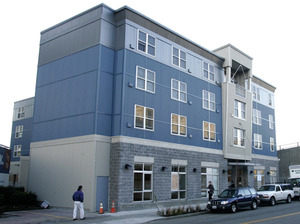Almost anyone who has been in AA for a long time knows that some longterm sober members (usually beyond 10 years) stop attending meetings and yet maintain a sober lifestyle while no longer consider themselves part of Alcoholics Anonymous. In Agnostic and Free Thinkers meetings you often find longterm members who still consider themselves part of AA (or not), attend meetings infrequently and do not participate in program features such as sponsorship or step work.
On the other hand, sometimes the zealous, blind faith in the full AA program is just what a suffering alcoholic needs at the start of recovery just to keep them on the straight and narrow path.
For myself at ten years in I still feel like I want to go to (agnostic) meetings every other week. For me living and loving a sober lifestyle is basically my program.

AA Didn’t Fit, Sobriety Did
One size does not fit all.
Here’s another voice with an alternative path to recovery:

 I am constantly frustrated by the compulsion on the part of AA members and groups to apply one single truth to all situations. The current calcification of AA culture into one of narrow Christian recovery dogma alienates and hurts many of exactly those for whom the program is intended. I am not saying that there is anything wrong with “Atlantic” type and “step-nazi” groups, except when they foster a culture that alienates and turns away those who need help. I wish the traditions included a declaration of gentle welcome for all new members and guests, as well as for members seeking help for similar and/or related addictions. I have often seen people make comments out of turn in meetings to clarify to a newcomer that the meeting is for alcoholics only, as described in the following article. It really puzzles me, particularly as the face of addiction has changed so much in the past twenty years. My meeting has a few atheists, a few addicts and even a person who comes each week in support of their partner. We are a strong, supportive group. We let people voice their opinions without responding or cross-talking. There are no prayers .The only requirement for membership is a desire to quit drinking. It works.
I am constantly frustrated by the compulsion on the part of AA members and groups to apply one single truth to all situations. The current calcification of AA culture into one of narrow Christian recovery dogma alienates and hurts many of exactly those for whom the program is intended. I am not saying that there is anything wrong with “Atlantic” type and “step-nazi” groups, except when they foster a culture that alienates and turns away those who need help. I wish the traditions included a declaration of gentle welcome for all new members and guests, as well as for members seeking help for similar and/or related addictions. I have often seen people make comments out of turn in meetings to clarify to a newcomer that the meeting is for alcoholics only, as described in the following article. It really puzzles me, particularly as the face of addiction has changed so much in the past twenty years. My meeting has a few atheists, a few addicts and even a person who comes each week in support of their partner. We are a strong, supportive group. We let people voice their opinions without responding or cross-talking. There are no prayers .The only requirement for membership is a desire to quit drinking. It works.
